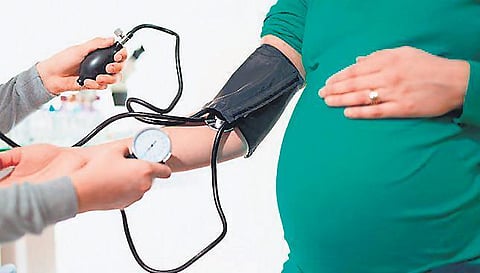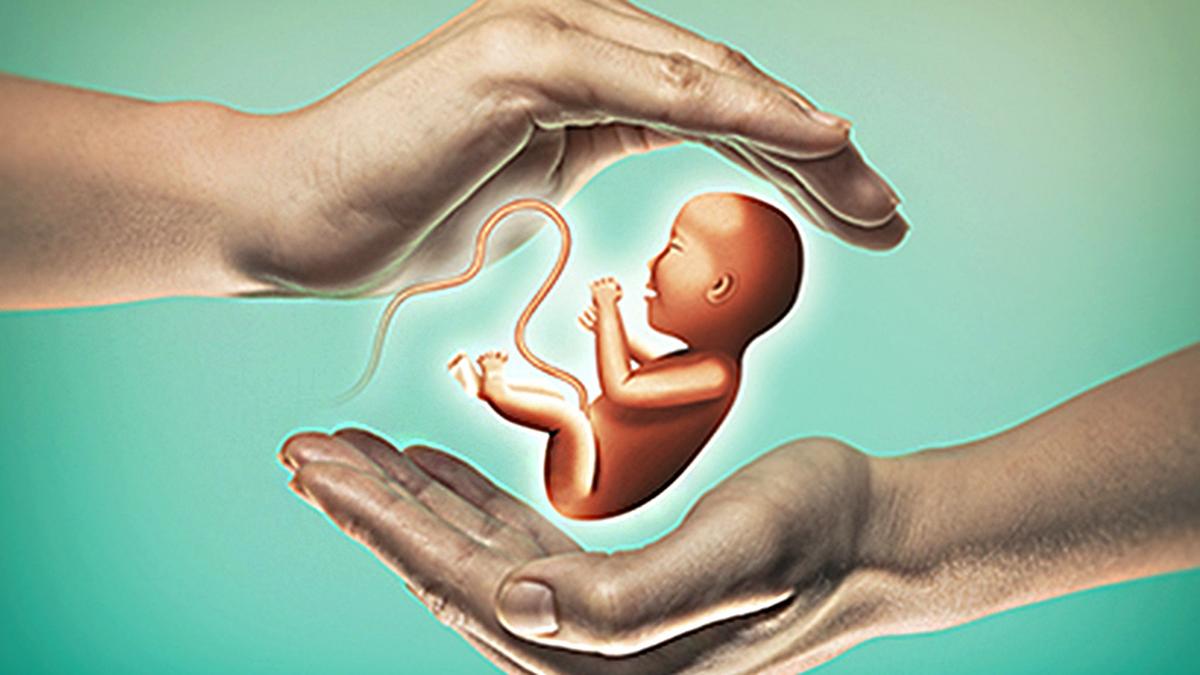Karnataka has witnessed a disturbing rise in teenage pregnancies, with over 80,000 cases reported in the past three years, according to state health department data. The figures highlight a pressing public health and social issue, reflecting not only the vulnerability of adolescents but also the gaps in sexual education, awareness, and protective mechanisms. Experts have expressed concern over the long-term consequences for both mothers and children, including health complications, educational disruption, and social stigma, particularly in rural and marginalized communities.
The surge in teen pregnancies underscores the need for comprehensive sexual and reproductive health education in schools and communities. Health authorities have pointed out that many adolescents lack basic knowledge about contraception, menstrual health, and the risks associated with early pregnancies. Child rights activists argue that poverty, lack of parental guidance, and peer pressure contribute to the rising numbers. The data also points to regional disparities, with higher incidence rates in rural districts compared to urban centers, reflecting socio-economic and cultural challenges that exacerbate the problem.
The social implications of early pregnancies are profound. Teenage mothers often face stigma and discrimination, which can lead to early school dropouts and limited future opportunities. Families may struggle to provide support, and children born to adolescent mothers may experience developmental challenges. Health experts warn of increased maternal and infant mortality risks due to complications during pregnancy and childbirth. The Karnataka government has pledged to strengthen preventive measures, but activists insist that immediate interventions are required to protect vulnerable teens.

Health and Educational Challenges
Teen pregnancies pose significant health risks, including anemia, obstructed labor, and higher rates of maternal mortality. Adolescents are not physically or psychologically equipped to handle early pregnancies, making access to healthcare facilities crucial. In many rural areas, lack of medical infrastructure further exacerbates these risks. Hospitals and health centers have been instructed to provide adolescent-friendly services, including counseling, prenatal care, and support for young mothers to minimize complications.
Education disruption is another critical concern. Teenage pregnancies often result in school dropouts, particularly for girls, limiting their chances for higher education and employment. Social pressures and familial restrictions frequently prevent adolescent mothers from continuing studies. Education authorities and NGOs are advocating for flexible learning options, counseling, and skill-building programs to ensure that teen mothers can resume education and lead productive lives despite early pregnancies.
Government Response and Policy Measures
The Karnataka government has acknowledged the severity of the issue and is reportedly planning to enhance awareness campaigns on reproductive health. Health officials are coordinating with schools, local panchayats, and NGOs to disseminate information on contraception, menstrual hygiene, and early pregnancy prevention. Policies aimed at empowering adolescents, particularly girls, through education, vocational training, and counseling services are also being considered.
Officials have emphasized that addressing teen pregnancies requires a multi-sectoral approach. Collaboration between health, education, and social welfare departments is essential to reduce incidence rates. Local authorities are being urged to monitor vulnerable communities, provide counseling services, and ensure timely medical interventions. Activists have also suggested incorporating life skills training in school curricula to equip adolescents with the knowledge and confidence to make informed decisions about their sexual and reproductive health.
Societal and Community Implications
The high incidence of teenage pregnancies has sparked widespread concern among civil society organizations and community leaders. Social stigma, lack of awareness, and cultural taboos often prevent adolescents from seeking help, thereby aggravating health risks and educational discontinuity. Community-based programs that involve parents, teachers, and local leaders are seen as critical for changing perceptions, providing guidance, and creating supportive environments for adolescents.
Experts stress that empowering adolescents, particularly girls, is key to breaking the cycle of early pregnancies. Awareness campaigns, access to contraceptives, and comprehensive sexual education are considered essential tools. Family support systems also play a vital role in ensuring that adolescent mothers can recover physically, emotionally, and socially while continuing their education and pursuing career opportunities.

Expert Opinions and Activist Calls
Health experts and child rights activists have warned that ignoring the issue could have long-term consequences for Karnataka’s socio-economic development. Teenage pregnancies are associated with higher health risks, lower educational attainment, and economic dependency. Activists are calling for stronger legal enforcement against child marriage, better reproductive health services, and widespread awareness programs targeted at adolescents and parents.
Psychologists emphasize the emotional trauma associated with teen pregnancies. Adolescent mothers often face feelings of isolation, depression, and anxiety, which can affect both their mental health and child-rearing capacity. Counseling services, peer support groups, and community engagement are critical to mitigating these psychological impacts and ensuring holistic support for both mothers and their children.
Regional Disparities and Rural Challenges
Data indicates that rural districts in Karnataka report higher numbers of teen pregnancies compared to urban centers. Factors such as poverty, limited access to education, early marriage practices, and lack of awareness contribute to this disparity. Health departments are prioritizing interventions in these districts, including mobile health units, awareness drives, and outreach programs to educate communities about the dangers of early pregnancies and available preventive measures.
Urban areas, while comparatively better informed, are not immune. Experts note that peer pressure, lack of parental guidance, and social media exposure contribute to rising incidences among city adolescents as well. Comprehensive strategies addressing both rural and urban contexts are necessary to ensure that adolescents across the state receive appropriate guidance, healthcare, and educational opportunities.
The rise in teenage pregnancies in Karnataka has also sparked debates about the adequacy of existing sexual education programs in schools. Many experts argue that the curriculum remains insufficient, failing to address critical topics such as contraception, consent, and healthy relationships. Teachers often lack proper training to handle sensitive discussions, leaving students with misinformation or gaps in understanding. Activists insist that a more comprehensive, age-appropriate approach is necessary to equip adolescents with the knowledge and confidence to make informed choices.
Parents and guardians play a crucial role in addressing teen pregnancies, but many remain unaware or uncomfortable discussing sexual and reproductive health with their children. This lack of communication contributes to adolescents relying on peers or social media for guidance, which can be misleading or inaccurate. Experts recommend parent-focused awareness programs to help families engage in open, supportive conversations with their children, creating an environment where adolescents can seek advice safely.
Healthcare infrastructure in several districts is also being scrutinized for its role in adolescent reproductive health. While urban centers have adolescent-friendly clinics and trained medical staff, many rural areas lack basic facilities, prenatal care, and counseling services. Mobile health units and outreach programs have been suggested to bridge this gap, ensuring that teenagers have access to timely medical attention, contraceptives, and guidance to prevent early pregnancies.
Community organizations and NGOs have increasingly stepped in to address these challenges. They conduct awareness drives, workshops, and support programs targeting adolescents, parents, and teachers. Peer education programs, in particular, have shown promise in creating relatable role models for young people, encouraging safer practices and informed decision-making. Collaboration with government initiatives is seen as critical for scaling such programs effectively across Karnataka.
Socio-economic factors, such as poverty and early marriage, remain significant contributors to the high rate of teen pregnancies. In rural districts, girls are often married off before the legal age due to financial pressures or cultural norms, exposing them to early pregnancies. Addressing these underlying causes requires coordinated policy action, including legal enforcement, economic support for families, and social campaigns to change community attitudes toward child marriage and adolescent reproductive rights.
Finally, the psychological impact on teenage mothers cannot be overlooked. Early pregnancies often bring emotional stress, social stigma, and mental health challenges, affecting both mother and child. Counseling, support networks, and education continuation programs are essential to help adolescent mothers recover and build a future. Experts stress that holistic intervention—combining education, healthcare, legal protection, and social support—is vital to reversing the trend and ensuring the well-being of Karnataka’s youth.
Legal and Policy Framework
The legal framework in Karnataka prohibits child marriage and mandates protective measures for minors. However, enforcement gaps and lack of awareness have limited the effectiveness of these laws. Activists are pressing for stricter monitoring, immediate reporting of violations, and legal support for affected adolescents. Policy interventions are also being designed to integrate health, education, and social welfare programs to address the multi-dimensional challenges posed by teenage pregnancies.
Monitoring mechanisms, helplines, and dedicated adolescent health clinics have been proposed as part of a comprehensive strategy. These initiatives aim to provide timely medical care, guidance on contraception, and psychological support, reducing the risks associated with early pregnancies. Coordination among government agencies, NGOs, and local communities is critical for implementing these measures effectively.

Call for Immediate Action
Civil society organizations have urged immediate action to prevent further rise in teenage pregnancies. Awareness campaigns, school-based education programs, and community involvement are considered key strategies. Experts insist that adolescent empowerment, access to healthcare, and legal protections must go hand in hand to create a sustainable solution. Failure to act swiftly could have long-term repercussions on the health, education, and socio-economic well-being of Karnataka’s youth.
The high number of teen pregnancies in the state is a wake-up call for policymakers, educators, and families alike. Collaborative efforts focusing on education, healthcare, legal enforcement, and social awareness are essential to safeguard adolescents’ rights, health, and future opportunities. Without urgent interventions, the cycle of early pregnancies and its associated challenges may continue to affect generations of young women and their communities.
Follow: Karnataka Government
Also read: Home | Channel 6 Network – Latest News, Breaking Updates: Politics, Business, Tech & More

